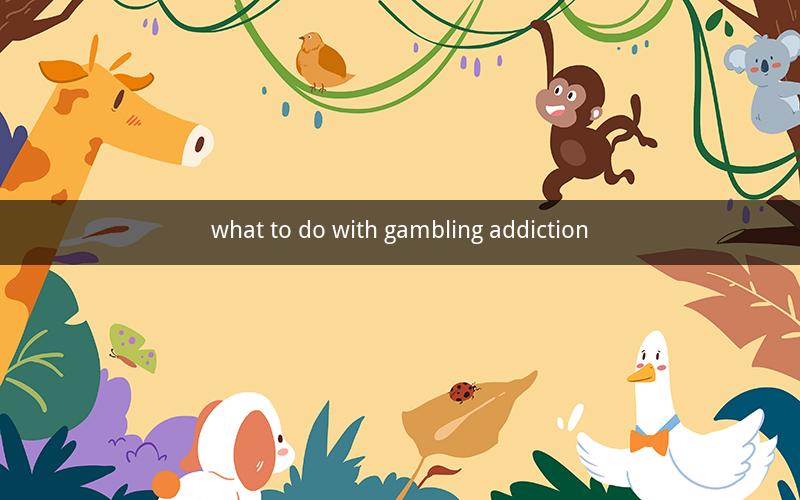
What to Do with Gambling Addiction
Table of Contents
1. Introduction to Gambling Addiction
2. Understanding the Causes of Gambling Addiction
3. Signs and Symptoms of Gambling Addiction
4. The Psychological Impact of Gambling Addiction
5. The Social and Financial Consequences of Gambling Addiction
6. Treatment Options for Gambling Addiction
7. Preventing and Managing Gambling Addiction
8. Support and Resources for Those Struggling with Gambling Addiction
9. Conclusion
1. Introduction to Gambling Addiction
Gambling addiction, also known as problem gambling or compulsive gambling, is a condition characterized by an inability to control or stop gambling, despite negative consequences. It is a type of addiction that can affect individuals of all ages, backgrounds, and socioeconomic statuses.
2. Understanding the Causes of Gambling Addiction
The causes of gambling addiction are complex and multifaceted, involving a combination of genetic, psychological, and environmental factors. Some common causes include:
- Genetic predisposition: A family history of addiction may increase an individual's risk of developing gambling addiction.
- Psychological factors: Low self-esteem, anxiety, and depression can contribute to the development of gambling addiction.
- Environmental factors: Exposure to gambling opportunities, such as casinos or online gambling websites, can increase the risk of developing gambling addiction.
3. Signs and Symptoms of Gambling Addiction
Recognizing the signs and symptoms of gambling addiction is crucial for seeking help. Common signs and symptoms include:
- Inability to control gambling behavior
- Preoccupation with gambling, even when not engaged in the activity
- Lying or hiding gambling activities
- Borrowing money or selling possessions to fund gambling
- Neglecting personal, family, or professional responsibilities
- Feeling restless or irritable when unable to gamble
4. The Psychological Impact of Gambling Addiction
Gambling addiction can have a profound psychological impact on individuals, leading to:
- Depression and anxiety
- Guilt and shame
- Suicidal thoughts
- Relationship problems
5. The Social and Financial Consequences of Gambling Addiction
Gambling addiction can also have significant social and financial consequences, including:
- Financial ruin
- Loss of employment
- Homelessness
- Divorce and family instability
6. Treatment Options for Gambling Addiction
Treatment for gambling addiction can vary depending on the individual's needs and preferences. Some common treatment options include:
- Cognitive-behavioral therapy (CBT): CBT helps individuals develop healthier coping mechanisms and reduce gambling-related thoughts and behaviors.
- Medication: Certain medications may be prescribed to help manage symptoms of depression or anxiety associated with gambling addiction.
- Support groups: Support groups, such as Gamblers Anonymous, provide a safe and supportive environment for individuals struggling with gambling addiction.
- Inpatient or outpatient rehabilitation programs: These programs offer structured treatment and support for individuals struggling with gambling addiction.
7. Preventing and Managing Gambling Addiction
Preventing and managing gambling addiction involves:
- Setting limits on gambling activities
- Seeking support from friends, family, or professionals
- Educating oneself about the risks of gambling addiction
- Avoiding triggers and high-risk situations
8. Support and Resources for Those Struggling with Gambling Addiction
There are numerous support and resources available for individuals struggling with gambling addiction, including:
- Gamblers Anonymous: A 12-step program for individuals struggling with gambling addiction.
- National Council on Problem Gambling: Provides information, resources, and support for individuals affected by gambling addiction.
- Therapy and counseling services: Professional help can be obtained from therapists, counselors, and psychologists specializing in gambling addiction.
9. Conclusion
Gambling addiction is a serious condition that can have devastating consequences. Understanding the causes, signs, and treatment options for gambling addiction can help individuals seek help and take steps to overcome this challenge. By taking proactive measures, individuals can improve their chances of overcoming gambling addiction and leading a healthier, more fulfilling life.
Questions and Answers
1. What is the most common cause of gambling addiction?
- Genetic predisposition
2. How can one recognize the signs of gambling addiction?
- Inability to control gambling behavior, preoccupation with gambling, lying or hiding gambling activities, etc.
3. What is the psychological impact of gambling addiction?
- Depression and anxiety, guilt and shame, suicidal thoughts, and relationship problems.
4. What are the financial consequences of gambling addiction?
- Financial ruin, loss of employment, and homelessness.
5. What is cognitive-behavioral therapy (CBT)?
- CBT helps individuals develop healthier coping mechanisms and reduce gambling-related thoughts and behaviors.
6. What are the treatment options for gambling addiction?
- Cognitive-behavioral therapy (CBT), medication, support groups, and rehabilitation programs.
7. How can one prevent gambling addiction?
- Setting limits on gambling activities, seeking support, and educating oneself about the risks.
8. What is Gamblers Anonymous?
- A 12-step program for individuals struggling with gambling addiction.
9. What resources are available for individuals struggling with gambling addiction?
- Gamblers Anonymous, National Council on Problem Gambling, and therapy and counseling services.
10. How can one manage gambling addiction?
- Setting limits, seeking support, avoiding triggers, and educating oneself about the risks.